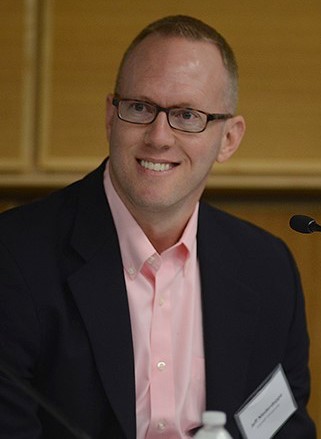

Intersectionality and Interdisciplinarity in Health Communication Research

KCHC will be entirely virtual for 2020. Please read this announcement from our conference director.
Have questions about how virtual KCHC 2020 will work? Please review our FAQ page.
 |
Dr. Marguerita Lightfoot (Ph.D., University of California, Los Angeles) is Professor of Medicine at the UCSF School of Medicine, Chief for the Division of Prevention Science, and Director of the Center for Prevention Studies (CAPS) and UCSF Prevention Research Center (PRC). She has considerable experience designing and implementing preventive interventions and has developed culturally competent, efficacious HIV interventions for delinquent adolescents, runaway/homeless youth, youth living with HIV, and young MSM. Her work includes developing interventions for dissemination via technology (e.g., computers, websites, mobile phone, video games). Dr. Lightfoot is particularly interested in developing cost-effective interventions that are easily translatable with utility in community settings and in utilizing new technologies to engage disenfranchised individuals in health promotion activities. She has also conducted psychotherapy with predominately African American and Latino adolescents, adults, and families infected with and/or affected by HIV. The keynote address will be delivered the morning of April 03, 2020. |
 |
Jesse Fox (Ph.D., Stanford University) is an Associate Professor in the School of Communication at The Ohio State University and Director of the Virtual Environment, Communication Technology, and Online Research (VECTOR) Lab. As a media scholar, Dr. Fox designs her research to investigate many aspects of communication technologies by employing multiple methodologies (e.g., experiments, surveys, content analyses, focus groups, and interviews). In the area of virtual environments (VE), she is primarily interested in using VEs to promote prosocial behavior (e.g., exercise, diet, environmental behavior). She also studies the effects of agents and avatars, investigating the effects of manipulating avatar features (e.g., self-similarity) to enhance prosocial outcomes. In the area of social media, her main focus is the role of social networking sites in romantic relationship escalation, maintenance, and dissolution. She has also investigated sex and gender in the context of video games, including sexual harassment in online games. |
 |
Lynn Carol Miller (Ph.D., University of Texas at Austin) is a Professor of Communication and Psychology at the University of Southern California Annenberg School for Communication and Journalism. Her research uses virtual interactive and gaming technologies to study, predict, and reduce real-life risky decision-making for high-risk, diverse, community-based populations. The resulting game applications are designed to be both (1) scalable and capable of being rapidly diffused (e.g., through DVDs or the Internet) and (2) usable in neural (e.g., functional MRI) "test-beds" to better understand the complex dynamics of risky decision-making in challenging contexts for risky versus safe target populations. The goal is for researchers to better understand decision-making processes and why and how interventions might be effective (and where they may be failing some individuals) so that we can cumulatively adjust, test, and if more effective, rapidly update and disseminate them broadly. |
 |
Albert "Skip" Rizzo (Ph.D., SUNY Binghamton) is the Director of the Medical Virtual Reality Research Group at the Institute for Creative Technologies and Research Professor in the Department of Psychiatry and School of Gerontology, University of Southern California. Dr. Rizzo conducts research on the design, development, and evaluation of virtual reality (VR) systems targeting the areas of clinical assessment, treatment rehabilitation, and resilience. He has developed VR systems for conducting exposure therapy for combat-related PTSD and is working with a team that is creating artificially intelligent virtual patients that clinicians can use to practice skills required for challenging clinical interviews and diagnostic assessments. His cognitive work has addressed the use of VR applications to test and train attention, memory, visuospatial abilities, and executive function. He also sits on a number of editorial boards for journals in the areas of cognition and computer technology and is the creator of the Virtual Reality Mental Health Email Listserve (VRPSYCH). |
 |
Ralf Schmälzle (Ph.D., University of Konstanz, Germany) is an Assistant Professor in the Department of Communication at Michigan State University. He is uniquely cross-trained in communication, health psychology, and social, cognitive, and affective neuroscience. Before joining MSU, Dr. Schmälzle worked as a postdoctoral research associate at the University of Pennsylvania in the Communication Neuroscience Lab. Dr. Schmälzle's research strives to provide a mechanistic understanding of how messages affect the brain and how the brain—the biological organ of communication—enables people to respond to and interact with a uniquely social world. His work promotes theoretical and methodological integration between communication science and neuroscience in the areas of neuroimaging of health prevention messages and media neuroscience. His main research tools include functional Magnetic Resonance Imaging (fMRI), electroencephalography (EEG/ERP), and related imaging methods. He combines these methods with self-report, linguistic measures, and behavioral testing. Preconference speakers will give presentations on April 02, 2020. |
 |
Dr. Janice Krieger is a Professor in the Advertising Department and serves as Director of the STEM Translational Communication Center in the College of Journalism and Communications at the University of Florida (UF). Dr. Krieger has published more than 80 peer-reviewed journal articles related to her research expertise in designing, implementing, and evaluating translational communication interventions. She serves as PI or co-I on several large grants funded by the National Institutes of Health. Her research has garnered more than $10 million in grant funding. Dr. Krieger serves on the editorial boards of Health Communication and the Journal of Health Communication. She is the Co-Program Leader for the Cancer Population Sciences Research Program at the UF Cancer Institute. Dr. Krieger also directs the Communication and Dissemination Program and co-directs the Recruitment Center at the UF Clinical and Translational Sciences Institute. In these roles, she promotes research and practice that improves the translation of science to various stakeholders. She directs an advanced undergraduate research experience course each semester and teaches a doctoral-level seminar on Translational Communication Science each spring. |
 |
Dr. Xiaoli Nan is a Professor of Communication Science and Co-Director of Graduate Studies in the Department of Communication at the University of Maryland. She is the Director of the Center for Health and Risk Communication and a full member of the Marlene and Stewart Greenebaum Comprehensive Cancer Center Population Science Program. She is an affiliate professor in the Department of Behavioral and Community Health and a faculty associate at the Joint Institute for Food Safety and Applied Nutrition. Dr. Nan’s research is broadly concerned with health and risk communication, focusing on (a) the design of persuasive messages to influence health risk perceptions and behaviors and (b) the role of traditional and emerging media (e.g., social media, mobile media, virtual reality) in promoting (and hindering) public health. Dr. Nan’s research addresses the basic processes of human judgment and decision making and the implications of these processes for effective health and risk communication. Dr. Nan’s interdisciplinary work has addressed such diverse public health challenges as cancer prevention, vaccination, food safety and nutrition, and climate change. Dr. Nan regularly teaches courses on health communication, persuasion and attitude change, media effects, and quantitative research methods. |
 |
Dr. Jeff Niederdeppe is an Associate Professor in the Department of Communication at Cornell University. His research examines the mechanisms and effects of mass media campaigns, strategic health messages, and news coverage in shaping health behavior, health disparities, and social policy. He has published more than 140 peer-reviewed articles in communication, public health, health policy, and medicine journals, and his work has been funded in recent years by the National Institutes of Health, National Science Foundation, U.S. Department of Agriculture, U.S. Environmental Protection Agency, Robert Wood Johnson Foundation, and Town Creek Foundation. He received the Early Career Award in 2016 from the Public Health Education and Health Promotion Section of the American Public Health Association and the Lewis Donohew Outstanding Scholar in Health Communication Award in 2014 from the Kentucky Conference on Health Communication. He is an Associate Editor of Communication Methods and Measures and serves on the editorial boards for eight other journals. |
 |
Dr. Seth Noar is a Professor in the Hussman School of Journalism and Media at the University of North Carolina, Chapel Hill (UNC) and a member of the Lineberger Comprehensive Cancer Center at UNC. His work addresses health behavior theories, message design and mass media campaigns, and eHealth applications. Dr. Noar has published more than 200 articles and chapters in a wide range of outlets in the social, behavioral, health, and communication sciences, and he serves on the editorial boards of several leading journals, including Health Communication and Journal of Health Communication. Dr. Noar has been PI, Co-PI, and Co-I on several NIH-funded studies testing health communication strategies for health promotion and disease prevention. He is the editor of two books, most recently (with co-editor Dr. Nancy Grant Harrington) eHealth Applications: Promising Strategies for Behavior Change, published by Routledge. Dr. Noar has been repeatedly recognized by Thomson Reuters/Clarivate Analytics as among the top 1% most cited researchers in the social sciences. In 2016, Dr. Noar received both the Lewis Donohew Outstanding Health Communication Scholar from the Kentucky Conference on Health Communication and the National Communication Association’s Outstanding Health Communication Scholar awards. In 2017, Dr. Noar was awarded the Mayhew Derryberry Research Award from the American Public Health Association.
|